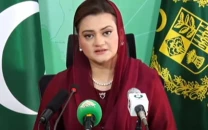Lessons in democracy: Party-based local polls challenged in Supreme Court
‘Due to lacunae in the LHC’s judgement, execution of the judgement would lead to legal and political crises’.

If most of the states in America conduct non-partisan municipal elections, it is only wise for us to follow suit, says Advocate Shabbir Ismail PHOTO: FILE
An appeal challenging the Lahore High Court’s order for party-based local government elections was filed at the Lahore Registry of the Supreme Court on Monday.
Advocate Shabbir Ismail filed the appeal stating that the LHC’s judgment had various legal lacunae and failed to address questions of interpretation of the constitutional provisions of first impression that had been raised by various respondents. Due to the lacunae, he said, the implementation of the judgment would lead to legal absurdities and political-legal crises.
Ismail said that party-less based local government election, as envisaged in Section 18 of the Punjab Local Government Act 2013, was not a new concept. Local government elections in Pakistan have consistently been held on party-less basis, he said.
Ismail said that the (now-repealed) Punjab Local Government Ordinance, 2001, the Cantonment Act(s) provided for similarly party-less elections and two elections had been held in the previous decade.
He said local government elections were also held on party-less basis in several advanced democracies like the USA. The reasoning behind that, he said, is that partisan politics at the grassroots defeats the purpose of local governments: to provide services and address public issues.

“An effective local government system necessitates the preclusion of political influence and partisan pressures,” Ismail said. When conflicts that might arise during the discharge of public duties or in following certain political policies are removed, local body members can perform their duties best, he said.
The petitioner said, according to a survey analysing the status of municipal elections in 30 major cities of the United States in 2001, 77 per cent of the cities surveyed held nonpartisan elections and 23 per cent had partisan elections. “If most of the states in America, considered to be the most democratic country in the world, hold nonpartisan municipal elections, it is only wise for us to follow suit,” he said. The reason for this is that municipal bodies are not meant to be tools for political scoring, but to render sound and impartial public services.
Published in The Express Tribune, December 3rd, 2013.



















COMMENTS
Comments are moderated and generally will be posted if they are on-topic and not abusive.
For more information, please see our Comments FAQ